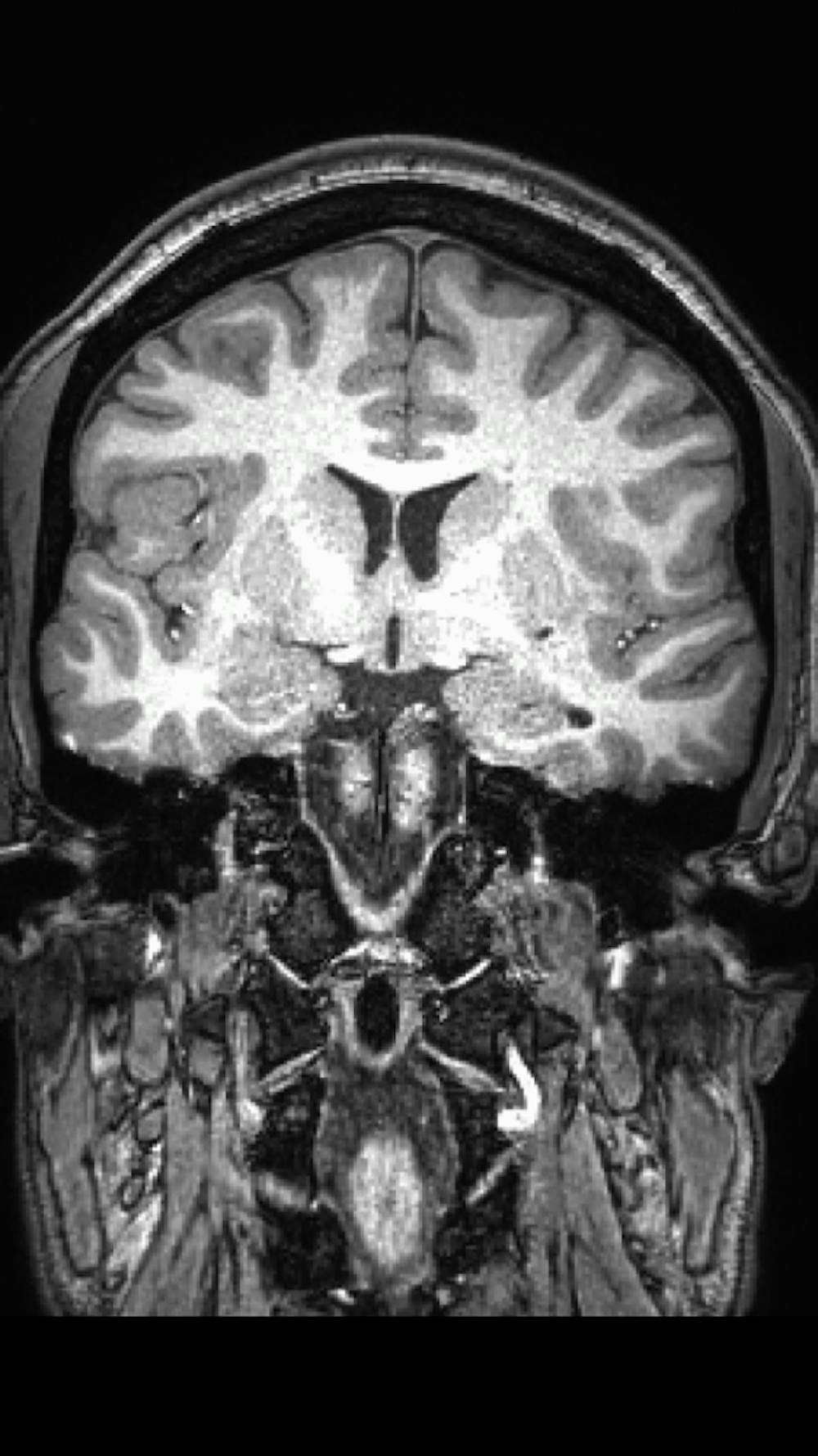Arnold Bakker has always been fascinated by how the brain stores and processes information, and how that information becomes available during the processes of memory. Information storage features prominently in his groundbreaking work in Alzheimer’s Disease research.
Bakker, Director of the Psychiatry Neuroimaging Core and Assistant Professor of Psychiatry and Behavioral Sciences, is part of a team of investigators at Hopkins that is testing an anti-seizure medication as a treatment to improve the memory impairment symptoms of Alzheimer’s disease and perhaps even slow its progression.
Alzheimer’s disease is usually characterized by two pathologies – misfolded amyloid and tau proteins, whose accumulation in the brain causes dysfunction in neurons, leading to neurodegeneration and functional impairment over time. Most Alzheimer’s drug trials have focused on interrupting these proteins from accumulating and thus, preventing neurodegeneration. Yet, none of these trials has been successful improving memory function or slowing the progression of this disease. The team of investigators at Hopkins chose to take a different approach to the problem.
He explained their approach sought to investigate the disease through a different lens. “We chose to look at Alzheimer’s disease and really focus on the memory impairment – the symptom of Alzheimer’s disease — rather than amyloid accumulation,” Bakker said in an interview with The News-Letter.
To study the disease’s symptoms, the team honed in on the hippocampus, which is critically important for memory function, as the object of their study.
“Research has taught us that this network very strongly depends on a balance between excitation and inhibition, between ramping up activity and controlling it,” Bakker said. “What we see in patients with Alzheimer's disease is that that balance is disturbed.”
Bakker’s studies have discovered that the hippocampus is hyperactive in patients with mild memory problems relative to cognitively normal older adults, showing a disturbed balance, with reduced inhibition and abhorrent excitation. This hyperactivity seemed to be associated with memory impairment in these patients with Mild Cognitive Impairment (MCI), a precursor to Alzheimer’s disease.
In early experiments, he found that reducing this hippocampal hyperactivation in patients with MCI to levels seen in cognitively normal older adults improved their memory function. Bakker explained how this discovery led the team to an idea for a novel treatment. “[Hippocampal hyperactivity] really could potentially be a target for treatment to prevent memory impairment from becoming worse,” Bakker said.
This, down the line, led to an ambitious global drug trial involving the investigators from the Department of Psychological and Brain Sciences, Hopkins Medicine’s Department of Neurology, the School of Public Health and the School of Engineering. This investigative team is studying the effects of the anti-seizure drug levetiracetam, administered over a period of 18 months, on memory function in patients with amnestic Mild Cognitive Impairment.
Bakker explained that the study is currently recruiting participants at more than 20 different sites, and what he hopes for in the long term. “The ultimate goal is to enroll over 800 patients with mild cognitive impairment due to Alzheimer's disease pathology, who would be in the study for a total of 18 months, receiving the medication every day,” Bakker said.
With the estimated end of enrollment in 18 months, followed by 18 months of treatment, the study will likely take around four years. Following the end of the clinical trials, the team can apply for the Food and Drug Administration to approve the medication for the treatment of Alzheimer’s.
The drug, levetiracetam, is already approved for seizure control, and has been prescribed for a long time, with a large amount of safety data already available. As to when the medication will be available to the masses, Bakker explained that it could be very soon. “In the grand scheme of drug development, I think it’s a very short trajectory and it could be as early as four to five years from now,” Bakker said.
Not only could this research lead us to the elusive intervention for Alzheimer’s disease, it has also provided a new approach that can be adopted in studies of similar diseases. Patients with schizophrenia or Parkinson’s disease seem to share the hyperactivity and memory impairment seen in Alzheimer’s, and it may be beneficial to explore the role that hippocampal hyperactivity may play in these illnesses. The success of this drug would not only be a breakthrough in the field of Alzheimer’s disease research, but would also support the case for exploring whether these types of drugs show promise in the treatment of other diseases.
Bakker’s discoveries and this study could mark a paradigm shift towards re-examining the systems and network dysfunction in neurological diseases in the search for their treatment.
To learn more about this trial, visit hope4mci.org





